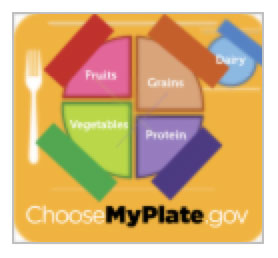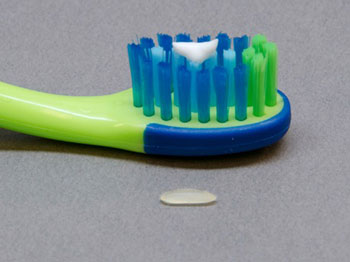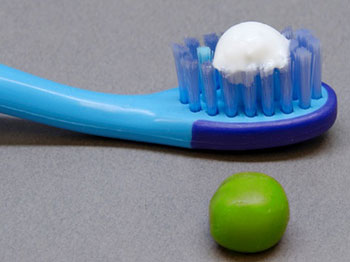- Handling Your Child's Dental Emergency
- Tooth Decay in Baby Teeth
- Your Child's Teeth
- Healthy Smiles for Mother and Baby
- Baby Teeth: When They Come In, When They Fall Out
- Your Child's First Visit to the Dentist
- Why Baby Teeth Are Important
- Your Child's Teeth: Ages Six–12
- Your Child's Teeth: From Birth to Age Six
- Your Child's First Dental Visit
The Importance of Oral Health During Pregnancy and Early Childhood
Maintaining good oral health is crucial for both expectant mothers and their babies. Not only does it help prevent complications during pregnancy, but it also plays a significant role in the child's future dental health. Oral health care before and after your baby arrives can contribute to overall well-being.

Pregnancy and Oral Health
Nourishing Your Baby's Development
What a mother eats during pregnancy significantly influences the growth and health of her baby, including the development of their teeth. A baby's teeth form between the third and sixth months of pregnancy. To support this development, pregnant women must consume a diet rich in calcium, protein, phosphorus, and vitamins A, C, and D. Contrary to popular belief, pregnancy does not cause women to lose calcium from their teeth. The baby's required calcium comes from the mother's diet, not her bones or teeth. Ensure an adequate calcium intake by consuming dairy products or following your doctor's recommendation on calcium supplements.
Healthy Snacking and Tooth Decay Prevention
It's common to experience increased hunger during pregnancy, but frequent snacking, especially on sugary foods, can lead to dental problems. Bacteria in the mouth feed on sugars, creating acids that attack tooth enamel, increasing the risk of cavities. Opt for nutritious snacks like fresh fruits, vegetables, and dairy products. These choices satisfy hunger and support the dental health of both mother and baby.
Pregnancy's Impact on Gums
During pregnancy, hormonal changes can make gums more sensitive to plaque, leading to inflammation and swelling, a condition known as gingivitis. Gingivitis is an early gum disease that can cause bleeding during brushing. Regular dental cleanings, particularly during the second and third trimesters, can help manage gum sensitivity. In some cases, pregnant women may develop benign growths known as "pregnancy tumors" that typically disappear after childbirth. These growths may bleed easily, so it's essential to consult your dentist if they appear.
Dental Care During Pregnancy
It's essential to maintain regular dental visits throughout pregnancy. Inform your dentist if you're pregnant or planning to be, and provide a complete health history, including your medications. Many pregnant women are concerned about dental treatments or X-rays, but most dental procedures are safe during pregnancy. If X-rays are necessary, dental professionals will take precautions to minimize exposure.
Daily Oral Care Tips for Expectant Mothers
- Brush twice daily using fluoride toothpaste to remove plaque and prevent tooth decay and gum disease.
- Floss daily or use an interdental cleaner to maintain healthy gums.
- Choose products that carry the American Dental Association (ADA) Seal of Acceptance to ensure safety and effectiveness.
After Your Baby Is Born
Caring for Your Baby's Teeth
Baby teeth typically appear around six months, and most children will have 20 baby teeth by age three. These teeth are essential for proper chewing, speaking, and facial development. Healthy baby teeth also set the stage for permanent teeth to grow correctly.
Preventing Early Tooth Decay
Baby teeth can start to decay as soon as they emerge. Sugary liquids, such as fruit juices, formula, and milk, can contribute to this decay if they remain in contact with the teeth for long periods. Avoid letting your baby sleep with a bottle of milk or juice, as this can lead to tooth decay, known as "baby bottle tooth decay."
Essential Tips for Keeping Your Baby's Teeth Healthy:
- Clean your baby's gums with a damp cloth or gauze pad after feeding.
- Once the first tooth appears, brush your baby's teeth twice daily with a soft-bristled toothbrush and fluoride toothpaste.
- Soothe tender gums during teething with a gentle massage, a cool spoon, or a teething ring.

For children under three years old.

For children three to six years old.
Establishing Healthy Dental Habits Early
It's important to schedule your baby's first dental visit by their first birthday or within six months of their first tooth appearing. This early visit can help establish a positive relationship with the dentist and set the foundation for a lifetime of good oral health.
Regularly check your child's teeth for signs of decay and share information about proper oral care with other caregivers. Additionally, ensuring your child gets the right amount of fluoride — whether through drinking water or supplements — will help keep their teeth strong and decay-free.
Conclusion
Both pregnancy and early childhood are critical times for establishing robust oral health. From maintaining a balanced diet during pregnancy to ensuring your child's teeth are properly cared for, following these steps will promote the health and well-being of both mother and baby. Regular dental visits and good daily habits can prevent issues before they start, giving your child a healthy smile for years.
Visit Our Office
Office Hours
- MON8:30 am - 5:00 pm
- TUE8:30 am - 5:00 pm
- WEDClosed
- THUClosed
- FRI8:30 am - 5:00 pm
- SAT9:00 am - 2:00 pm
- SUNClosed